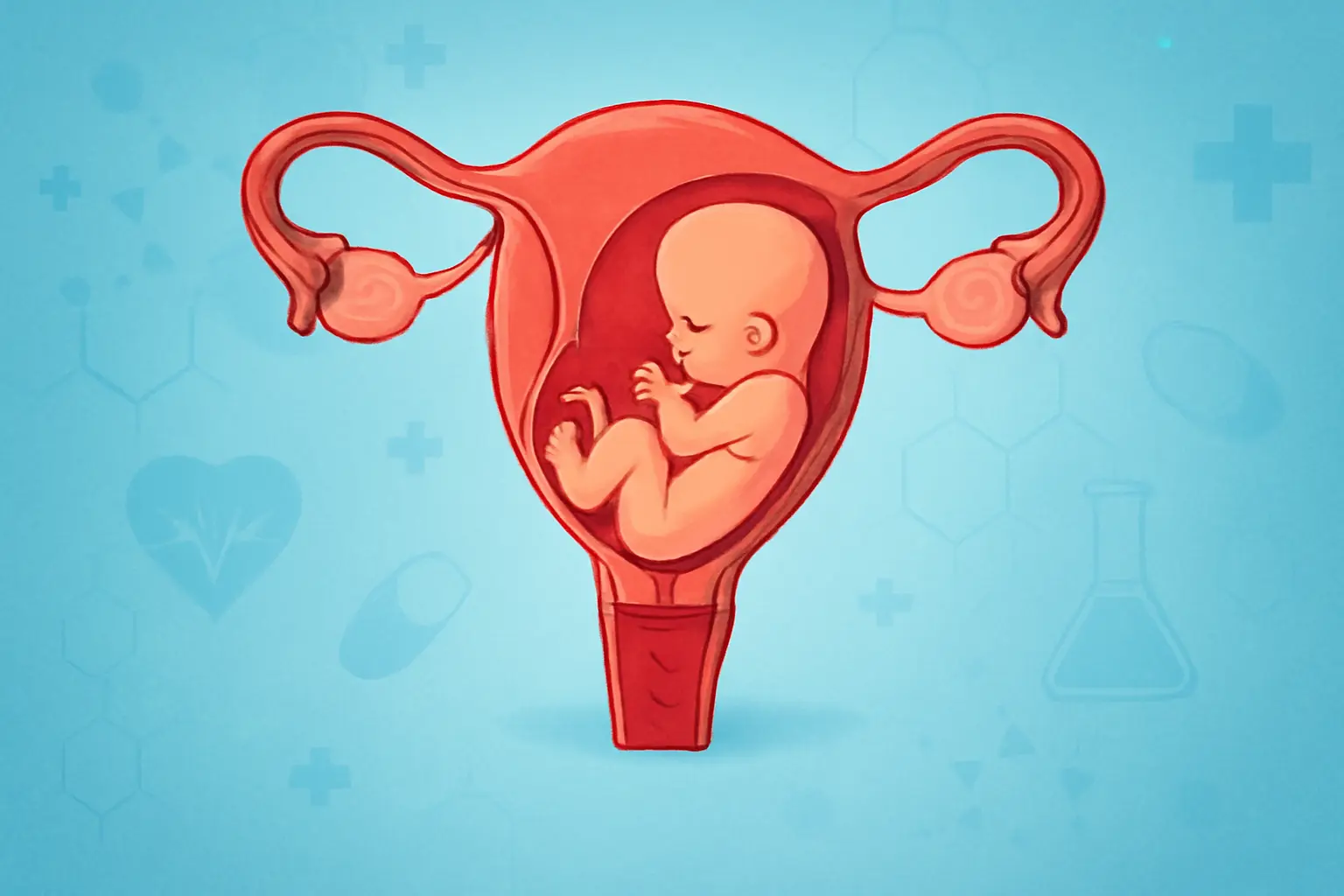Collagen during pregnancy is not only a buzzword but a supplement that has been gaining attention among expectant mothers. As pregnancy brings about significant changes to a woman’s body, it’s crucial to nourish and support those changes, especially the skin, joints, and connective tissues. Collagen, a major protein in our bodies, plays a key role in this. But, with various forms of collagen available, such as collagen powder and collagen peptides, it’s important to explore the benefits and potential risks involved in taking collagen during pregnancy.
Table of Contents
- What is Collagen?
- Is Collagen Safe During Pregnancy?
- Natural Sourcing of Collagen Supplements
- Benefits of Collagen During Pregnancy
- Is Collagen Powder Safe During Pregnancy?
- Risk of Collagen During Pregnancy
- How Much Collagen Should You Take During Pregnancy?
- Collagen vs. Other Supplements During Pregnancy
- FAQs About Collagen During Pregnancy
- Conclusion
What is Collagen?

Collagen is the most abundant protein in the human body. It accounts for about 30% of the body’s protein and is found in connective tissues, skin, hair, bones, cartilage, and muscles. Collagen is composed of amino acids, which include proline, glycine, and hydroxyproline, all of which help maintain the structural integrity of tissues. During pregnancy, your body requires more collagen to support the changes that come with carrying a baby.
Your skin, for instance, needs collagen to remain firm and stretchable as it accommodates the growing baby. Collagen during pregnancy aids in preserving skin elasticity, helping the skin to stretch without excessive damage, thereby reducing the likelihood of stretch marks.
Is Collagen Safe During Pregnancy?
The body is in a vulnerable state during pregnancy, which is a time of great transformation and increased sensitivity. Significant changes occur in the immune system, hormones, and nutritional requirements. Any new nutrient or supplement that is added to the body might therefore affect both the mother and the unborn child. Among the many supplements that expecting mothers consider, collagen has gained popularity due to its benefits for skin elasticity, joint health, and overall connective tissue strength. However, when it comes to collagen during pregnancy, safety is always the foremost concern.
Natural Sourcing of Collagen Supplements

One of the main factors that contributes to the safety of collagen during pregnancy is its natural origins. The majority of collagen supplements come from animal sources like fish, poultry, or cattle. These sources are common in collagen formulations because they provide the types of collagen that the body readily absorbs and utilizes.
- Beef collagen is typically derived from cattle and is rich in Type I and Type III collagen, which are beneficial for skin, bones, and joints.
- Chicken collagen is rich in Type II collagen, which is particularly helpful for joint and cartilage health.
- Fish collagen, especially from fish skin or scales, is also an excellent source of Type I collagen, supporting skin and bone health.
Since collagen comes from natural sources, it is considered safe for most women, but as with any supplement, there are a few important considerations to ensure it doesn’t negatively impact the pregnancy.
Benefits of Collagen During Pregnancy
The potential benefits of collagen during pregnancy are numerous, making it a popular choice for many expecting mothers. Here are some of the most significant advantages:

Improved Skin Elasticity and Reduced Stretch Marks
The ability of collagen to increase skin elasticity is one of its most notable advantages during pregnancy. Your skin is frequently strained as your body adjusts to accommodate a developing baby, which can result in stretch marks. By preserving the skin’s suppleness, collagen may lessen the visibility of stretch marks.
Numerous studies have demonstrated that by improving skin hydration and elasticity—two factors that are critical during pregnancy when the skin stretches quickly—collagen supplements may help lessen the appearance of stretch marks.
Joint and Ligament Health
During pregnancy, it exerts additional load and stress on the joints and ligaments, resulting in additional pressure, pain, or even discomfort. During pregnancy, collagen peptides can be used to aid in the integrity of such joints and ligaments. It acts by enhancing the thickness of collagen fibers in the connective tissues, which may alleviate pain, stiffness, and inflammation.
Women with lower back pain, knee pain, or other pain in the pelvis may also find collagen beneficial, as collagen is a key factor in the well-being of the joints and ligaments.
Hair and Nail Strength
Pregnancy hormones can cause changes in your hair and nails, including thinning or brittleness. Many women report that their nails become more fragile, or their hair may lose volume during pregnancy. Collagen during pregnancy provides the essential amino acids needed for healthy hair and nails. Collagen helps strengthen hair follicles and promotes faster growth, which may be a welcome benefit during pregnancy.
Is Collagen Powder Safe During Pregnancy?

Collagen powder during pregnancy is one of the most commonly used forms of collagen, and it is generally considered safe for most women when consumed in moderation. The powder is made from hydrolyzed collagen, meaning it has been broken down into smaller peptides that are easier for the body to absorb.
Additives and Artificial Ingredients
Artificial sweeteners, preservatives, or coloring additives may be present in many collagen supplements, particularly those of lesser quality. Because they can upset the hormonal balance, aggravate the digestive tract, or cause other undesirable side effects, these additives can be dangerous during pregnancy.
For instance, high added sugar content in some collagen powders may lead to gestational diabetes or excessive weight gain. Others might contain dairy, soy, or gluten, which could be an issue if you have dietary sensitivities or intolerances to these substances.
Furthermore, preservatives and artificial flavors can interfere with digestion or have long-term effects on your body’s natural detoxification processes, which are more sensitive during pregnancy.
Carefully reading the labeling is essential to reducing this danger. Select natural collagen supplements that don’t contain any extraneous additions or fillers and solely offer pure, basic ingredients, such as hydrolyzed collagen
However, not all collagen powders are the same. Some may contain added sugars, artificial flavorings, or other additives that may not be beneficial for pregnancy. It’s essential to choose a high-quality, third-party tested collagen powder to ensure that it is free from harmful chemicals.
Allergic Reactions
For individuals with allergies to fish, shellfish, or beef, it’s important to be cautious with collagen supplements derived from these sources. Collagen peptides sourced from such ingredients during pregnancy may cause allergic reactions, so always read the label carefully.
Risk of Collagen During Pregnancy

While collagen during pregnancy is generally safe for most women, there are some risks to consider, mainly related to the quality of the product and overconsumption.
Unregulated Supplement Industry
Governmental organizations don’t always enforce strict regulations on the supplement industry, which includes collagen supplements. This implies that there can be significant differences in the safety, purity, and quality of collagen products between brands. Certain supplements might include contaminants, preservatives, or additives that could be dangerous to a developing fetus. For example, women with sensitivities may be at risk from certain inferior collagen supplements that contain artificial sweeteners, fillers, or allergens like gluten or soy.
Choosing collagen products from reliable companies that offer third-party testing and certifications is essential to avoiding these possible problems. These certifications ensure that the product has gone through rigorous purity and potency tests and contains no harmful chemicals. In order to make sure that the product meets your needs in safety and health, make sure to read the label to find out what is in it and where it is sourced.
Overconsumption
Consumption of large quantities of collagen may cause stomach upsets and other problems. Collagen is a protein, and as with all proteins, it must be digested by the body. When consumed in excess, it may saturate the digestive system and cause such side effects as bloating, gas, or an overall feeling of being full. Protein overload may be harmful in uncommon instances because the kidney or liver would be overworked to eliminate surplus body nutrients.
The average recommended dose of collagen is 2.5 to 15 grams/day. To prevent consuming the drug more than the recommended dosage by the manufacturer, it is critical to take the drug as the manufacturer recommends. Should you have any digestive disturbances, you should stop taking it and see your doctor. Depending on the needs of your particular pregnancy, your healthcare provider can help you modify the dosage or determine whether collagen is appropriate.
Consult Your Doctor
Every woman has different health needs during pregnancy, and the experience is unique. While most women believe that taking collagen supplements during pregnancy is safe, it is important to speak with your doctor. Every pregnancy is unique, and your doctor can offer you tailored guidance based on your health, medical history, and any current issues.
Your doctor will help you decide whether collagen supplements are a beneficial addition to your pregnancy diet or whether your nutritional needs can be met through food sources alone. For example, certain prenatal vitamins and minerals might already provide sufficient amounts of collagen-building nutrients like vitamin C, glycine, and proline.
Furthermore, your physician can provide you with guidance regarding the appropriate amount and type of collagen (such as collagen peptides, collagen powder, or foods high in collagen) to include in your diet. This individually-designed advice ensures that you are neither receiving excessive amounts nor insufficient amounts of any given nutrient and that you are safely helping enhance your own health and the growth of your unborn baby.
How Much Collagen Should You Take During Pregnancy?

The optimal dosage of collagen varies depending on the product and individual needs. On average, 2.5 to 15 grams of collagen daily is considered safe for pregnant women. Most collagen supplements suggest a dosage between 5 and 10 grams per day, which is ideal for most expecting mothers. Always ensure you are following the manufacturer’s directions and talk to your healthcare provider for a personalized dosage recommendation.
Collagen vs. Other Supplements During Pregnancy
Collagen supplements during pregnancy offer particular advantages for the health of the skin, hair, and joints, but they shouldn’t be used in place of other crucial prenatal vitamins and minerals like calcium, iron, folic acid, and omega-3 fatty acids. Both the mother’s health and the development of the child depend on these nutrients. Collagen should complement these vital supplements rather than replace them.
FAQs About Collagen During Pregnancy
1. Is it safe to take collagen during pregnancy?
When taken in moderation and from reliable sources, collagen during pregnancy is generally regarded as safe. Before starting a new supplement regimen, always get advice from your healthcare provider.
2. Can collagen help with stretch marks during pregnancy?
Yes, collagen can help improve the elasticity of the skin, reducing the likelihood of stretch marks.
3. Can I take collagen powder during pregnancy?
Collagen powder during pregnancy is safe for most women, but it is always recommended that you check with your doctor to ensure it is right for you.
4. Are there any risks to taking collagen during pregnancy?
While collagen peptides during pregnancy are generally safe, it is important to be aware of potential allergens in certain collagen products, especially if you have a sensitivity to shellfish, beef, or fish.
5. What are the benefits of collagen during pregnancy?
The main advantages of collagen during pregnancy are better skin elasticity, better joint health, and stronger hair and nails.
Conclusion
From improving joint function to promoting skin elasticity, collagen during pregnancy has many advantages for expectant mothers. Before starting a new supplement regimen, it’s crucial to select safe, high-quality supplements and speak with your doctor. Collagen peptides during pregnancy can be a beneficial supplement to your prenatal care routine if you follow the right instructions.
Explore more on Pregnancy Must –
- Can You Get Laser Hair Removal While Pregnant or Not?
- Pregnancy Safe Sunscreen: Protect Your Skin While Expecting
- Best Belly Butter for Pregnancy: Your Skin’s Ultimate Defense









